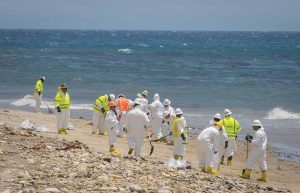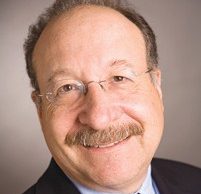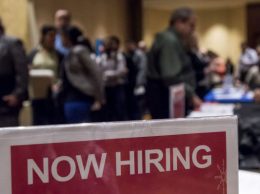Plains All American Pipeline, the Houston-based company responsible for the oil spill near Refugio Beach on May 19, should stop the bullshit.
Plains’ aversion to providing honest answers about the spill was on full display June 26 at a joint oversight hearing by the Assembly Natural Resources Committee and the Senate Select Committee on the Refugio Oil Spill held in Santa Barbara.
When Patrick Hodgins, Plains director of safety and security, was asked why Line 901, the only pipeline in Santa Barbara County that doesn’t have an automatic shut-off valve, doesn’t have one, Hodgins responded that the pipeline only had to adhere to federal regulations and they don’t require them.
Hodgins said industry best practices that Plains follows call for pipeline operators to not use automatic shut-off valves “because of the potential damage it could do if shut inadvertently.”
Dianne Black, a Santa Barbara County planning official, disputed that assertion. She said automatic shut-off valves are a safe technology and an industry best practice and that is why the county requires them in every pipeline.
But Plains sued the county to avoid that requirement, as well as county oversight and weld inspections, by arguing that the pipeline crosses state lines and is only subject to less stringent federal requirements.
Plains won the lawsuit and built and operated Line 901 without the automatic shut-off valve or county inspections, but at what cost?
A Plains employee remotely shut down Line 901 at 11:30 a.m. on May 19 but Plains did notify the federal agency that coordinates emergency response until 2:56 p.m. When Hodgins was asked why it took so long, he replied, “I don’t have that information in front of me.”
California law requires the operator to report a spill to the California Office of Emergency Services within 15 to 30 minutes after it is discovered. Plains didn’t even come close.
Plains estimates that the cleanup of the oil spill has cost $96 million so far, and that doesn’t include claims, lawsuits, penalties and lost business and tourism revenues.
The state lifted the ban on commercial fishing but Santa Barbara seafood is now tainted because of media coverage of the oil spill. Refugio State Beach is still closed and El Capitan State Beach just reopened June 26.
Hodgins testified that “we feel horrible about what has happened, and we are committed as a company to make things right.”
For starters, Plains should do three things:
1. Hold a news conference with its CEO and answer honestly all media questions related to the oil spill.
2. Stop hiding inspection reports and other critical information and tell the public what really happened.
3. Partner with local entities to promote tourism, fishing and other industries in Santa Barbara County impacted by the oil spill.
That would be a first step in the right direction. What will take longer is taking all the steps necessary to make sure that this never happens again.






 Print
Print Email
Email


















